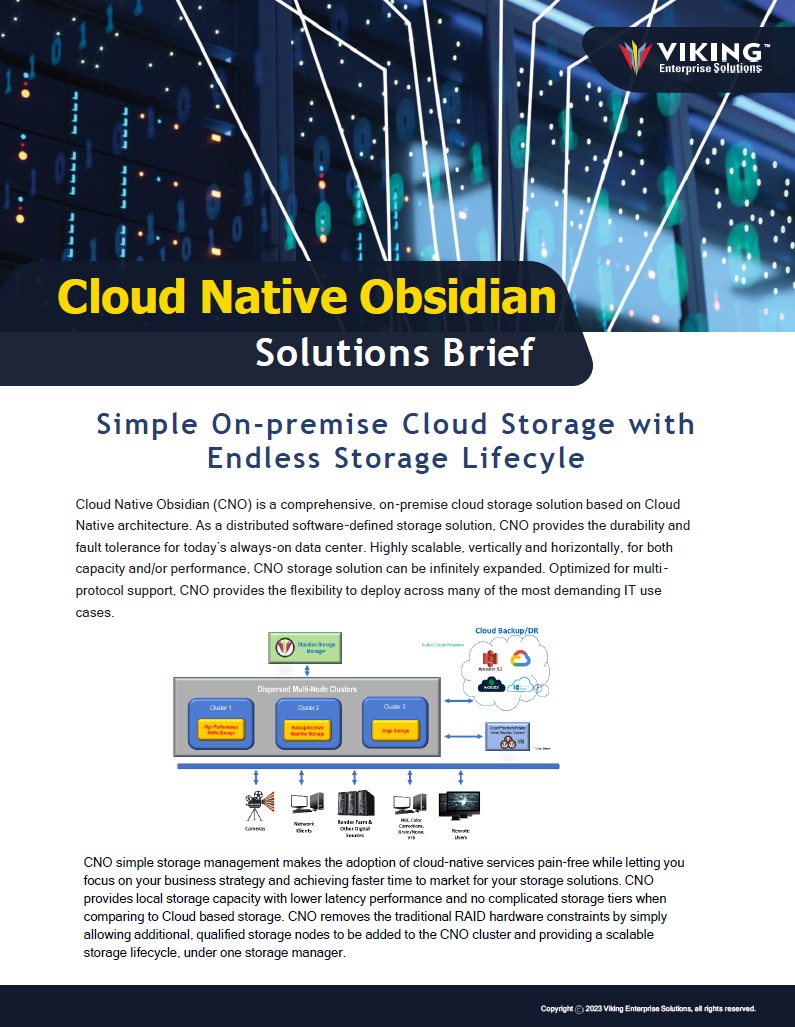CLOUD NATIVE OBSIDIAN OVERVIEW
Cloud Native Obsidian (CNO) is a comprehensive, on-premises cloud storage solution based on Cloud Native architecture. As a distributed software-defined storage solution, CNO provides the durability and fault tolerance for today’s always-on data center. Highly scalable, vertically and horizontally, for both capacity and/or performance, our CNO storage solution can be infinitely expanded. Optimized with multi-protocol support, CNO provides the flexibility to deploy across many of the most demanding IT use cases.
CNO simple storage management makes the adoption of cloud-native services pain-free while letting you focus on your business strategy and achieving faster time to market for your storage solutions. CNO provides local storage capacity with lower latency performance and no complicated storage tiers, when compared to Cloud based storage. CNO removes traditional RAID hardware constraints by simply allowing additional, qualified storage nodes to be added to the CNO clusters and providing a scalable storage lifecycle, under one cloud native storage manager.
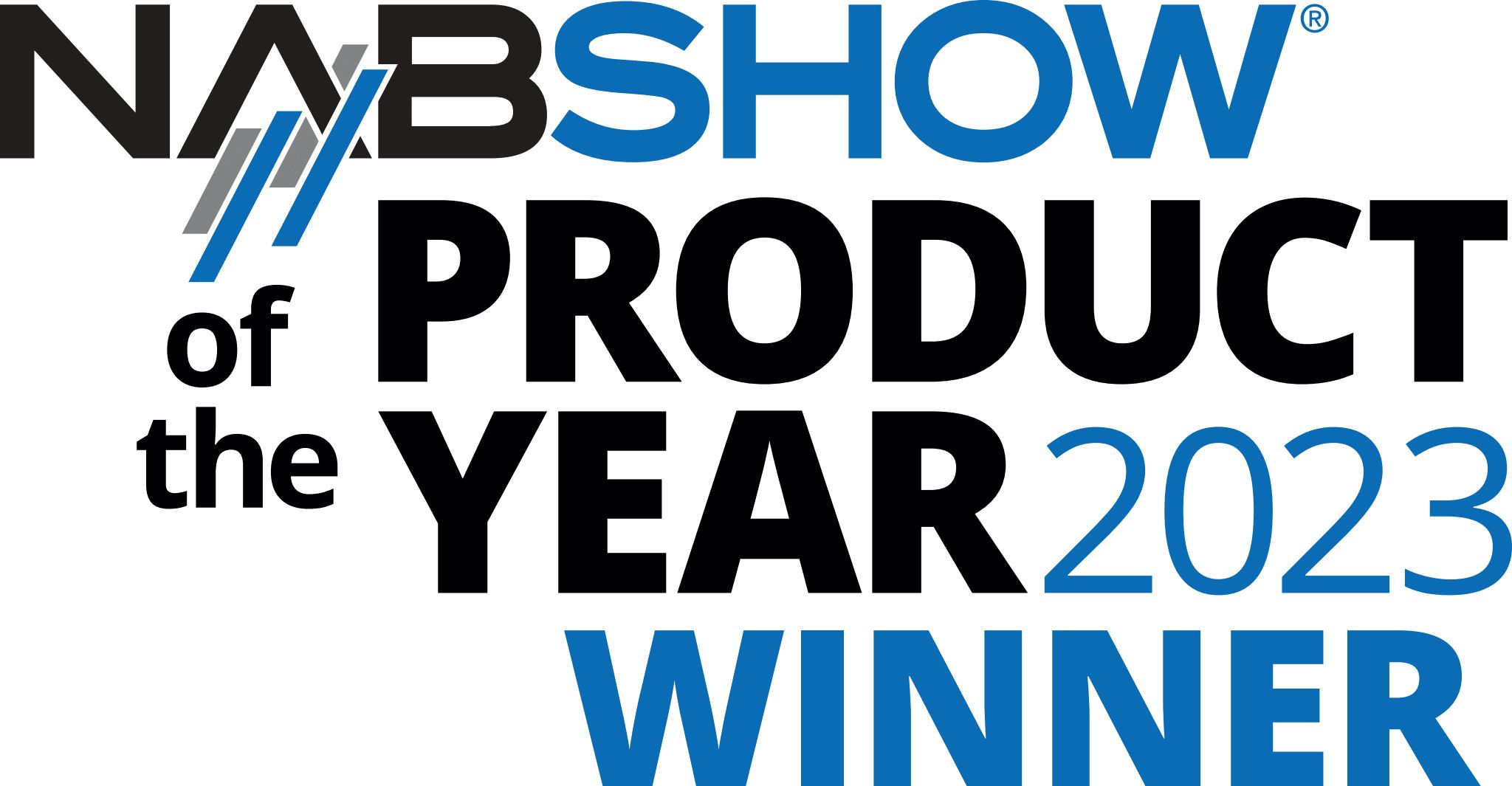
Cloud Native Obsidian Storage Framework
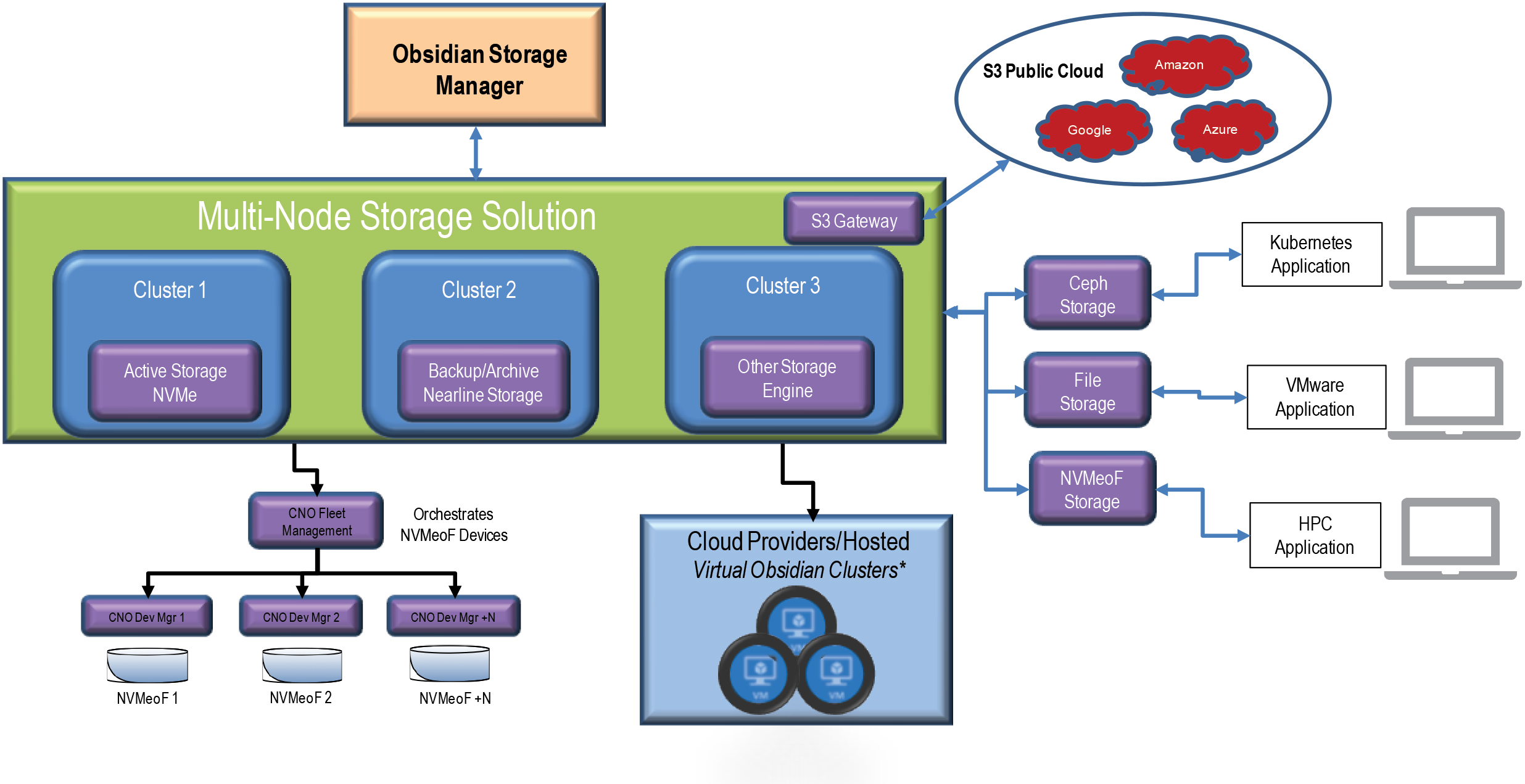
Cloud Native Obsidian Software Features
Simple
- Single-Pane of Glass provides a simple and intuitive cloud native storage manager that helps eliminate the cloud complexity
- Future-proof and No Boundary Storage Solution
- Single Sign on for Administration
- Seamless and Non-Disruptive Upgrade
- Alerts and Monitoring of CNO Storage Clusters and All Storage Engines
- Cloud integration with security features
Distributed and Secure
- Resilient, Fault-Tolerant and Distributed Software Defined Storage Solution for Maximum Uptime
- Erasure Coding or Replication Support for Superior Data Protection
- Durable with data protection and distributed clusters
Complete Immutability
- Data Protected From a Ransomware Compromise
Scalable
- Optimized and Dynamically Scalable for Both Capacity and Performance
- Hybrid HDD/SSD and NVMe Web-scale Storage Solutions
- Future-proof by Adding New Storage Generation and Still Managed Under a Single Storage Manager
Flexible
- Enterprise Scale File Services (S3 Object Storage, NFS V3 and V4, SMB File Sharing Support)
- Microsoft Active Directory (AD) Support
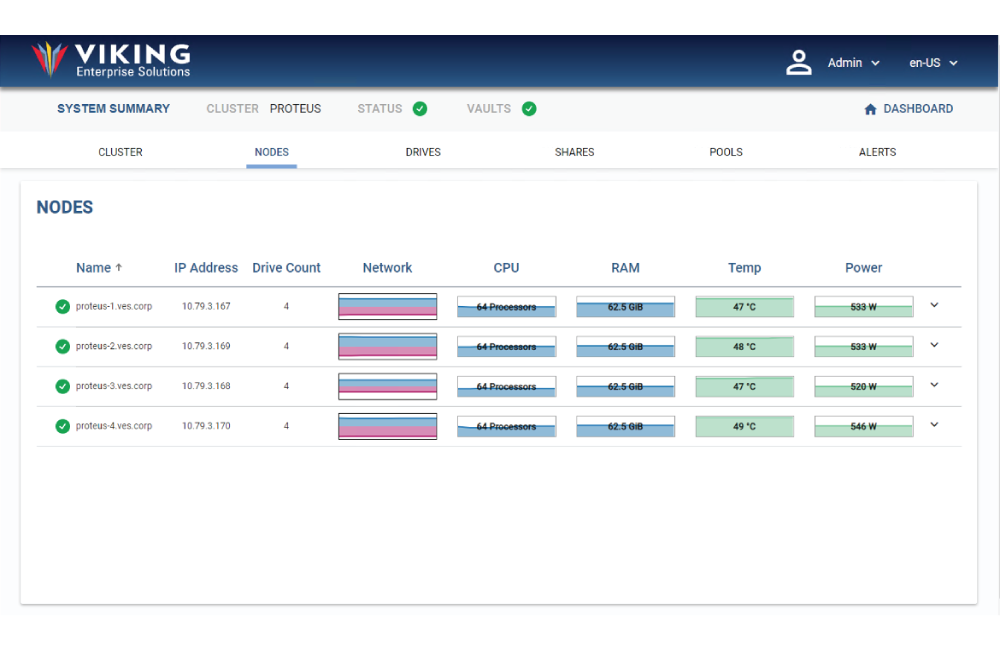
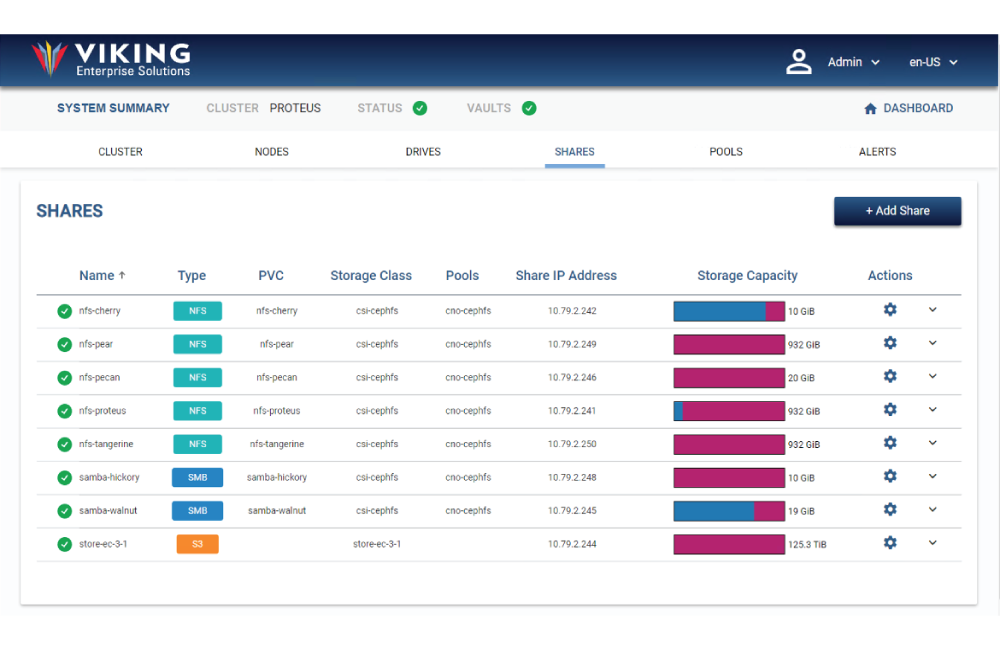
Data Replication
Data replication is the process of copying/synchronizing data from one source to one or more destinations. It is a common practice in many enterprises, as it allows for the availability of data in multiple locations. CNO built-in data replication feature helps streamline and simplify the complex and challenging process of implementing the data replication requirements with no added costs.
Cloud Native Obsidian Data Replication
Viking CNO Replication is an elastic, fully managed, feature that replicates objects between buckets. CNO replication is based on S3 which offers the most flexibility and functionality that is found in Cloud Storage, but now at your datacenter thereby giving you the controls you need to meet your data sovereignty and other business needs.
CNO Replication Workflow
CNO provides the replication controls in its simple user friendly interface. A storage or an application administrator can easily create replication and configure the parameters without needing to know a lot about storage, protocols, networking and cloud.
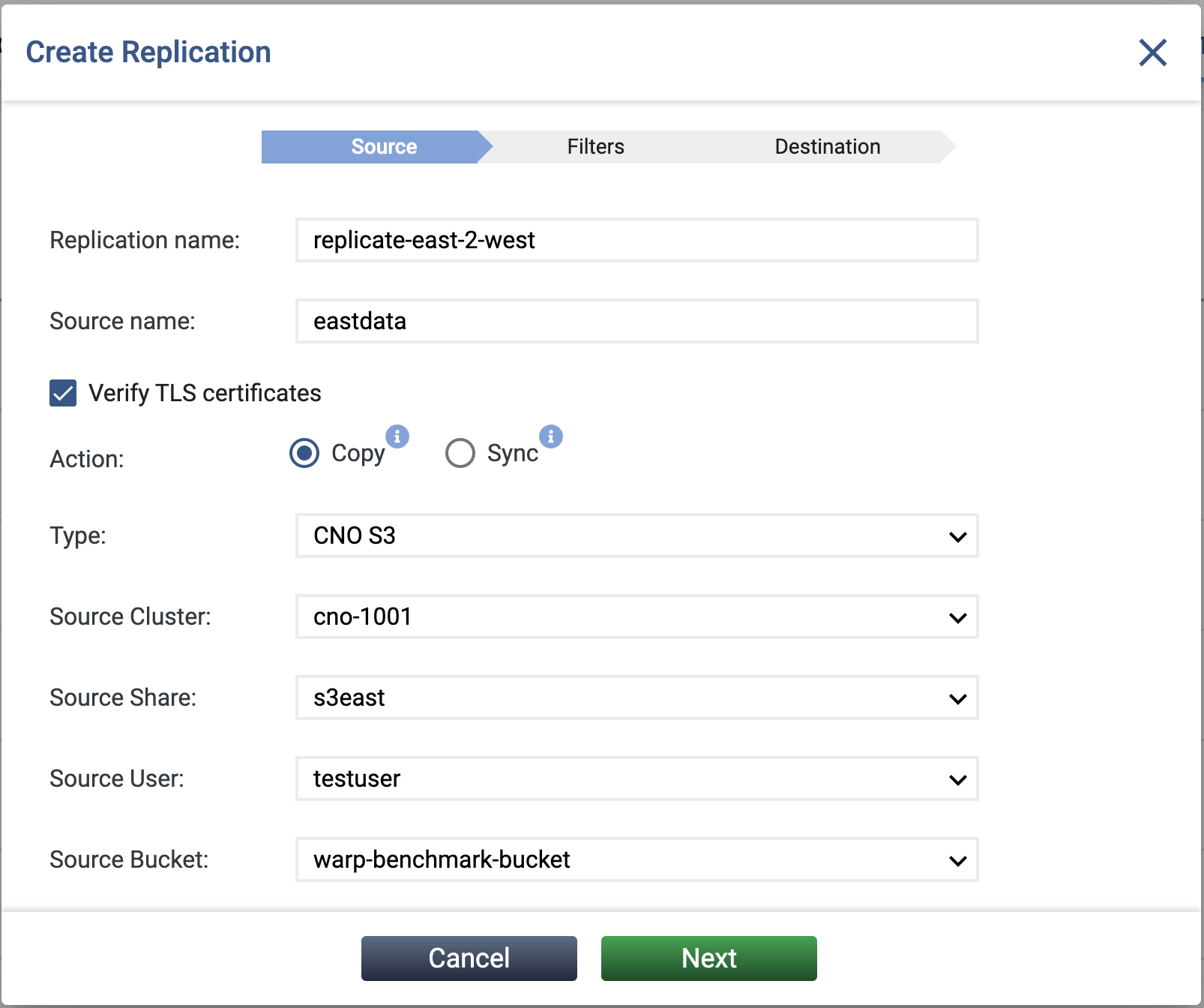
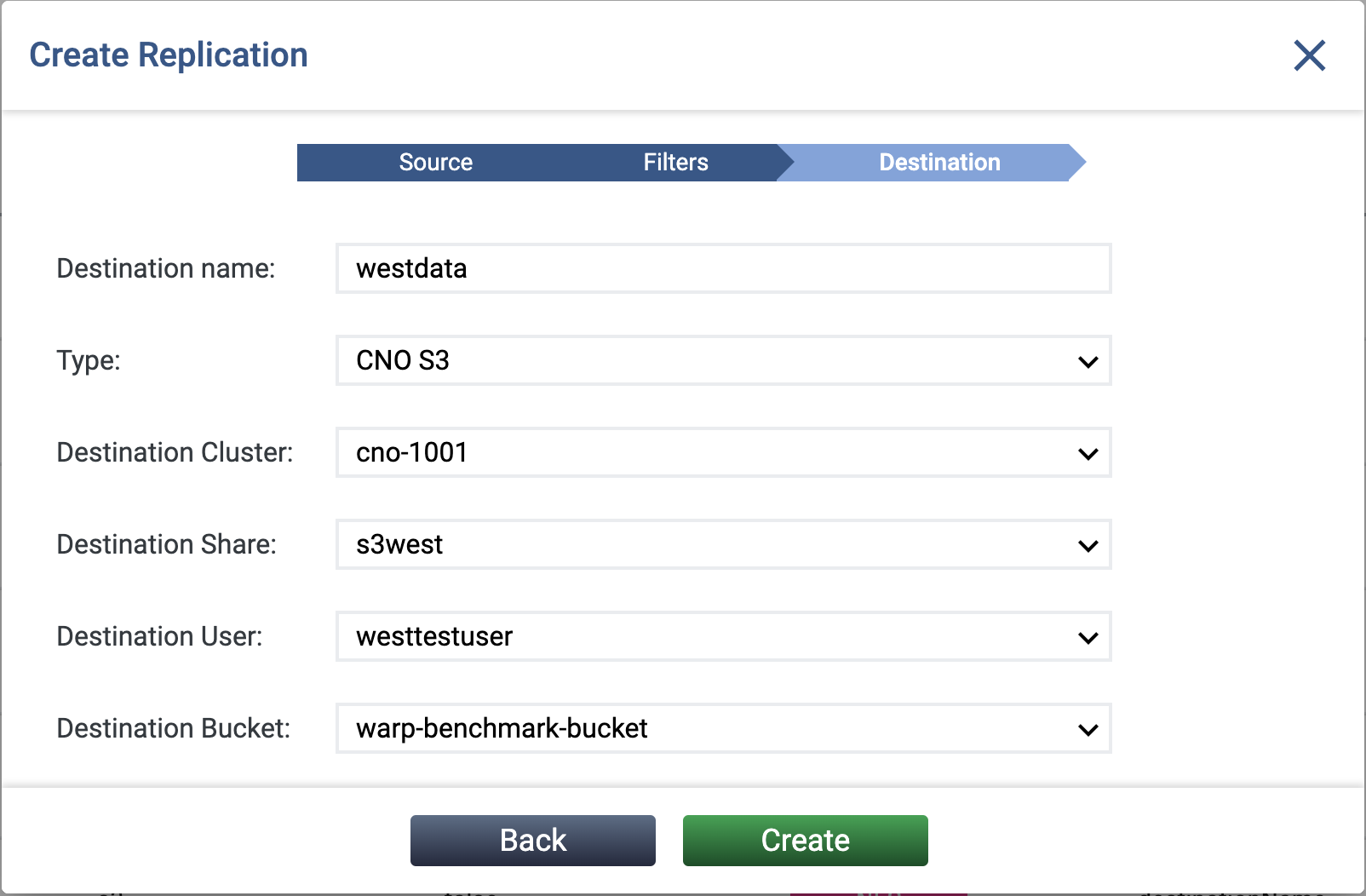
Customers needing a predictable replication time backed by a Service Level Agreement (SLA) can use Replication Time Control (RTC) to replicate objects without impacting performance for local users.
CNO data replication feature also provides detailed metrics and notifications to monitor the status of object replication between buckets. You can monitor replication progress by tracking bytes pending, operations pending, replication latency, and operations failed replication using the CNO Storage Management User Interface. You can also set up CNO Event Notifications to receive replication failure notifications to quickly diagnose and correct configuration issues. CNO data replication metrics and notifications help you closely monitor replication progress.

Benefits of CNO Data Replication
CNO Data Replications makes data available on multiple data centers thereby facilitating large-scale sharing of data among systems and distributes the network load among multisite systems.
Organizations can expect to see benefits including:
Improved reliability and availability: If one system goes down due to faulty hardware, malware attack, or another problem, the data can be accessed from a different site.
Improved network performance: Having the same data in multiple locations can lower data access latency, since required data can be retrieved closer to where the transaction is executing.
Increased data analytics support: Replicating data to a data warehouse empowers distributed analytics teams to work on common projects for business intelligence.
Improved test system performance: Data replication facilitates the distribution and synchronization of data for test systems that demand fast data accessibility.
- Cloud Native Obsidian Local Replication
- Cloud Native Obsidian Remote Replication
- Cloud Native Obsidian Hybrid Replication
- Cloud Native Obsidian Cloud Replication
CNO local replication delivers convenient and cost-effective local data copies using cloud standards based S3 protocol to full-bucket clones. It generates copies faster and more frequently than host-based solutions, with no impact on production applications.
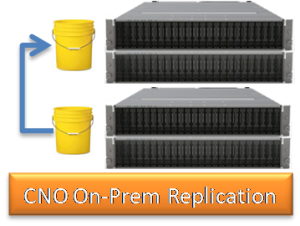
CNO Remote replication copying data to remote CNO storage clusters at a remote location or secondary site as part of a disaster recovery plan or data protection solution. Remote replication is used by data-driven organizations to back up important data into remote or secondary locations in case of problems with the primary production data such as disasters, malfunctions or attacks on the system that may result in data loss.
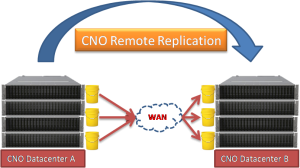
CNO Data Storage Replication also supports moving data between cloud object storage and CNO. Hybrid cloud users can replicate to and from any S3 compatible cloud vendor including AWS, Azure, and Google Cloud. This gives users cost effective options for storing data either locally, remotely, or in the cloud.
Data migration is usually driven by an application migration or consolidation in which legacy systems are replaced or augmented by new applications that will share the same dataset. These days, data migrations are often started as firms move from on-premises infrastructure and applications to cloud-based storage and applications to optimize or transform their company.
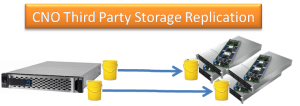
CNO Data Storage Replication also supports moving data between cloud object storage and CNO. Hybrid cloud users can replicate to and from any S3 compatible cloud vendor including AWS, Azure, and Google Cloud. This gives users cost effective options for storing data either locally, remotely, or in the cloud.
Data migration is usually driven by an application migration or consolidation in which legacy systems are replaced or augmented by new applications that will share the same dataset. These days, data migrations are often started as firms move from on-premises infrastructure and applications to cloud-based storage and applications to optimize or transform their company.
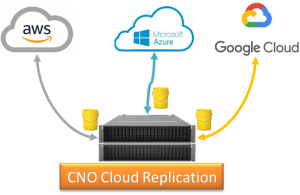
Case Studies
- Reduce Object Storage Latency and No Additional Fees Required
- Faster Backup and Recovery of Data
- Consolidate with Simple and Scalable Multi-Protocols Support
- Obsidian Storage Management
Reduce Object Storage Latency and No Additional Fees Required
Private cloud, local S3 compatible buckets with always ON access
Fast and lower latency access to data
No cache servers required
Fault-tolerant storage architecture with no local recovery required
Ransomware protection with object locking support
On-premises IT control and compliant
Scale as you grow
Future proof with the latest hardware technologies
One central storage management interface
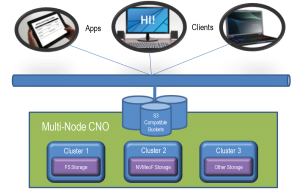
Faster Backup and Recovery of Data
Multi-protocols support
Snapshots and replication for quick recovery
Shorten backup windows
Ransomware protection with object locking support
Gain faster access to recovery data
Scalable as you grow
Best media to replace tapes
One central storage management interface
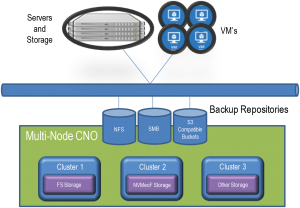
Consolidate with Simple and Scalable Multi-Protocols Support
Fault-tolerant storage architecture with no local recovery required
Simple single name space file sharing
Faster general files access
Ransomware protection with object locking support
Snapshots for quick recovery
Massively scalable as you grow
One central storage management interface
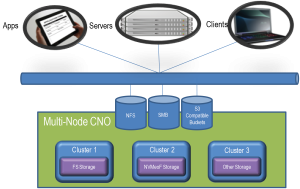
Obsidian Storage Management
Simplify storage management with secure anywhere and anytime access and control
Manage unlimited number of Obsidian clusters with a single pane of glass, Obsidian Storage Manager
Intuitive with full-control for the whole Obsidian storage infrastructure
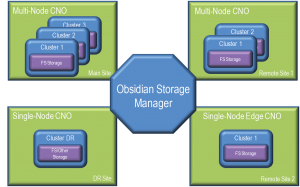
Cloud Native Obsidian Hardware System
Density-optimized 2U rack server with high speed networking, I/O and four compute modules per 2U chassis. Each compute module supports up to two 2nd Generation Intel® Xeon® processors per module and up to 16 DDR4 DIMM slots per server board (eight DIMMs per CPU). Each CPU supports up to 165W processor TDP for high performance workloads in a 2U air-cooled chassis. Serviceability benefits include support for hot-swappable compute modules, storage and power supplies.
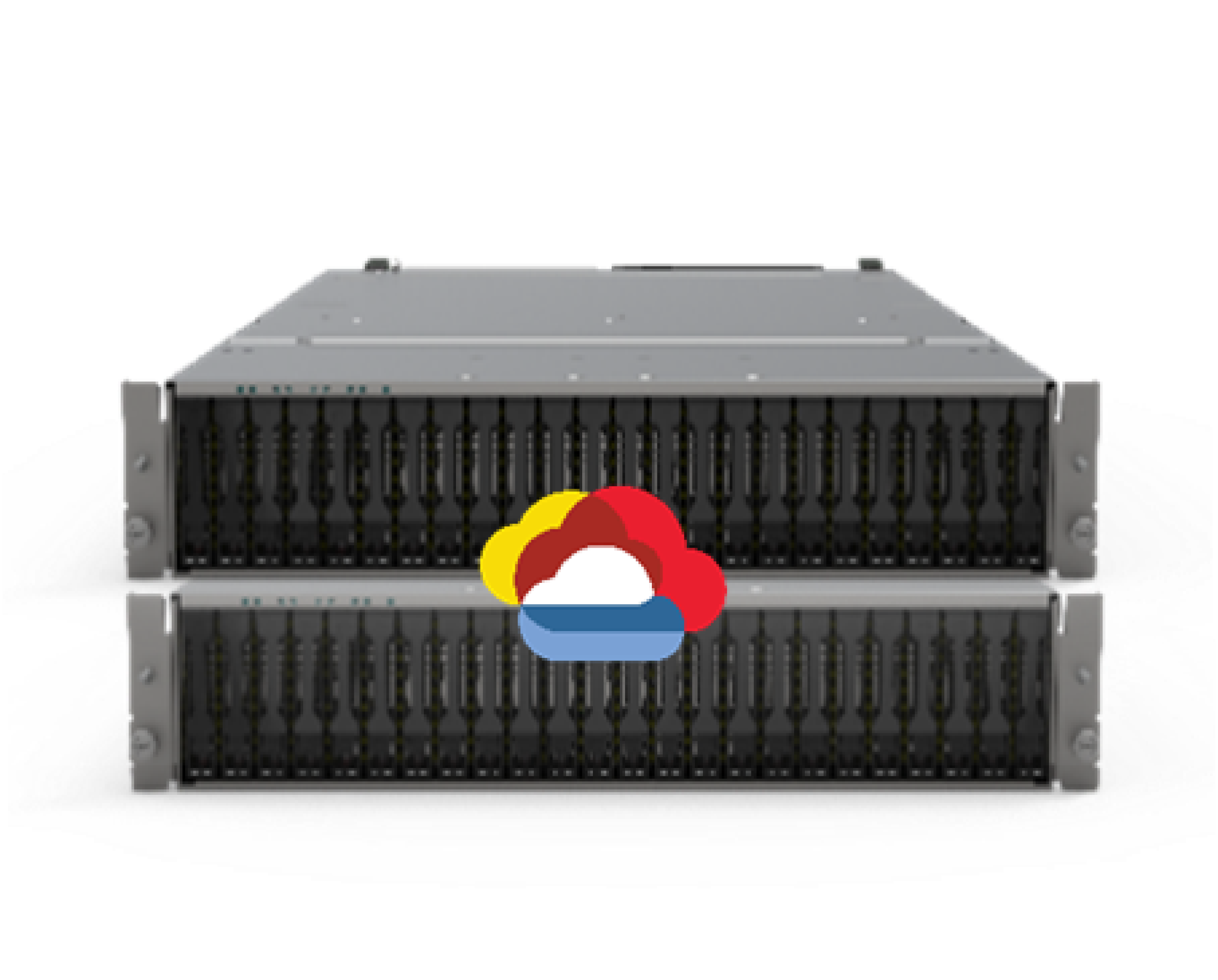
Interested in this product solution?
REQUEST A DEMO
For more information about this product solution, please email us at channel@vikingenterprise.com or call us at +1 (855) 639-7838

